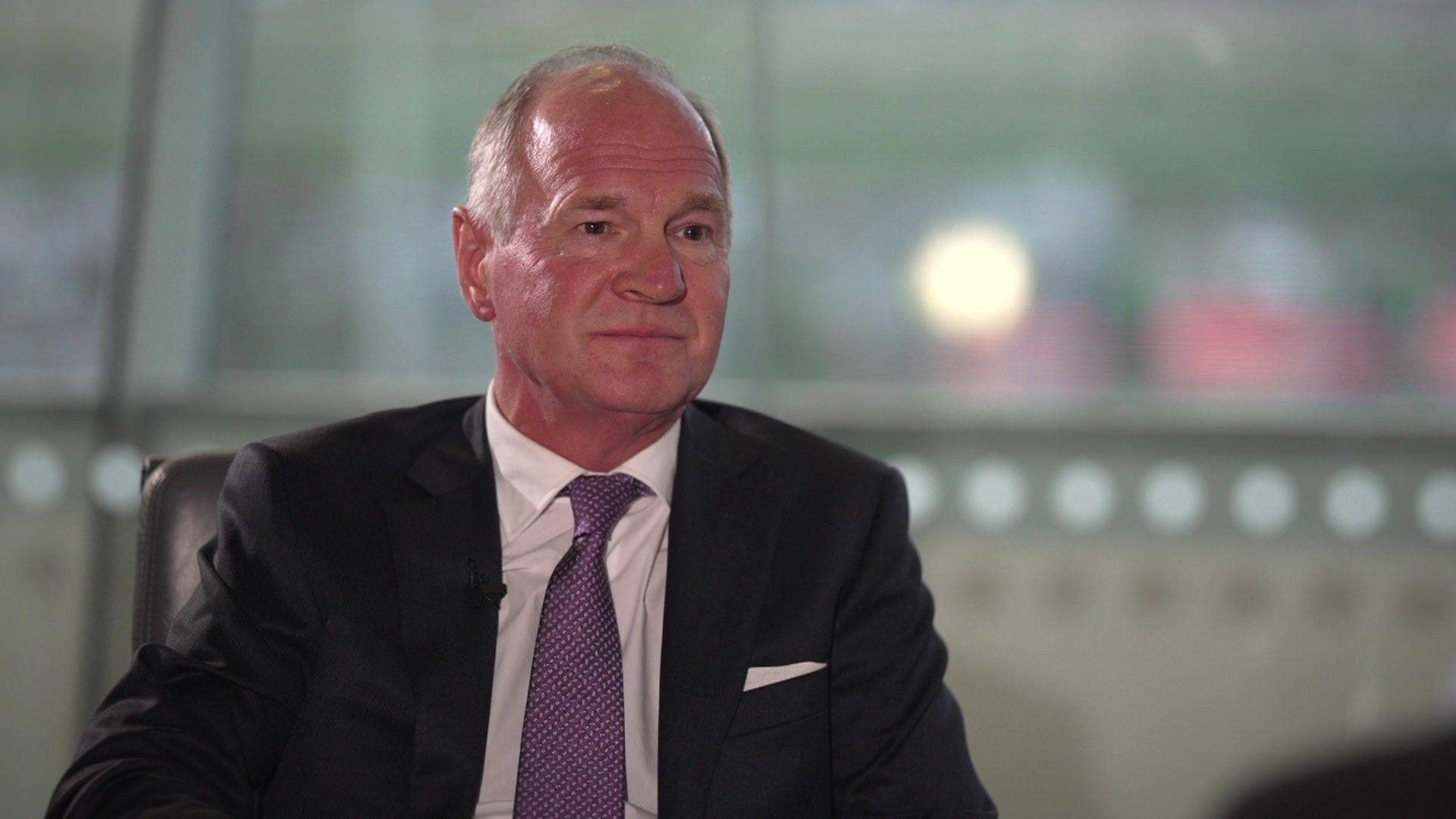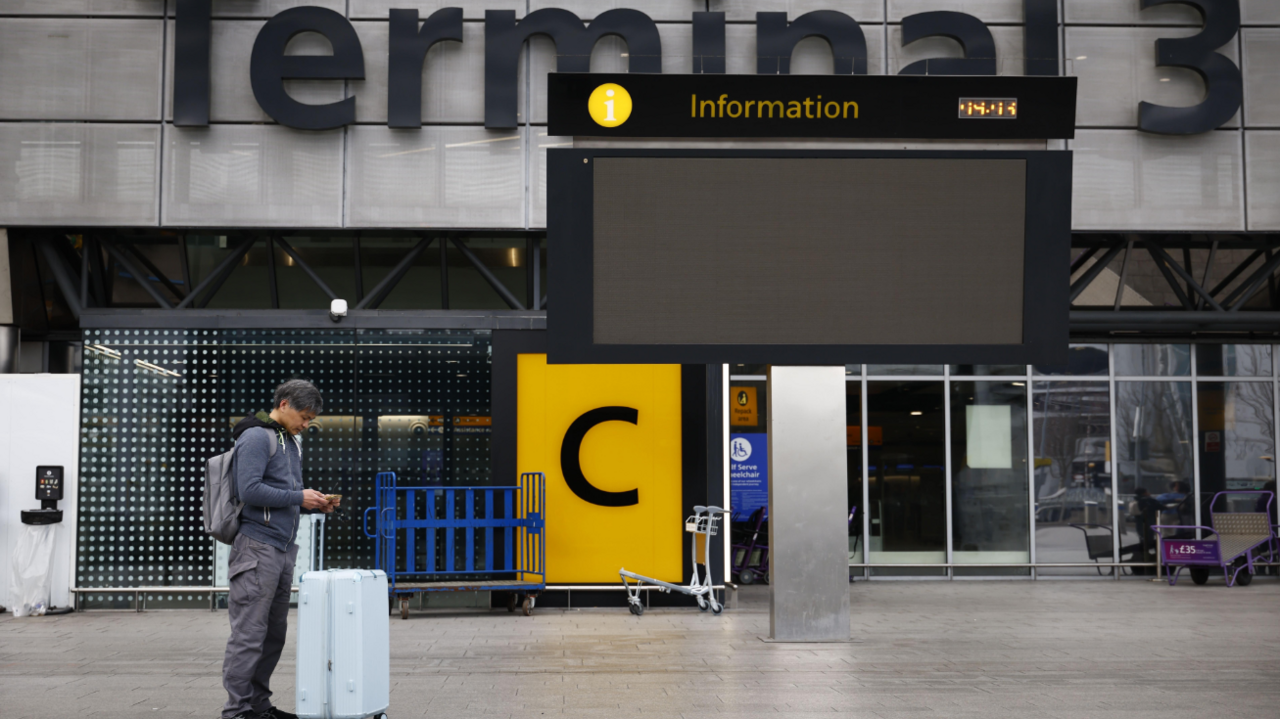Heathrow chief asleep as airport closed - report

Thomas Woldbye expressed "his deep regret at not being contactable during the night of the incident", the review said
- Published
Attempts to tell Heathrow airport's sleeping chief executive that the airport had been closed because of a power outage failed because his bedside phone was on silent, an inquiry has found.
Thomas Woldbye was in bed as senior Heathrow staff decided to suspend operations because of a fire at a nearby electrical substation.
No flights operated at the west London airport until about 18:00 GMT on 21 March because of the blaze which started late the previous night.
The closure, which affected 270,000 journeys, was caused by "an unprecedented set of circumstances", Heathrow chairman Lord Deighton said, adding the airport's infrastructure will be made "more fit for the future".
Heathrow commissioned the inquiry into what happened, led by former transport secretary Ruth Kelly, who is an independent member of the airport's board.
The Kelly Review found that Mr Woldbye "was not involved" in the decision taken by the airport's chief operating officer Javier Echave at 01:15 on 21 March to suspend operations until 23:59.

Hundreds of thousands of passengers were grounded or diverted due to Heathrow's power cut closure
Alerts known as F24 alarms were sent to Mr Woldbye's mobile at 00:21 and 01:52 to activate emergency procedures, and Mr Echave tried to call him several times.
The report stated: "Mr Woldbye first became aware of the incident at approximately 06:45 on 21 March, and received a debrief from Mr Echave."
Mr Woldbye expressed "his deep regret at not being contactable during the night of the incident", the review said.
The review recommended that Heathrow considers having a "second means of contact" to notify key individuals about critical incidents.
The Sunday Times first reported, external that Mr Woldbye slept as the major disruption unfolded on 21 March.
However, when asked by the Daily Mail, a Heathrow spokesperson described the Sunday Times' account of events as "ill-informed misinformation".
"Thomas, and his whole senior leadership team, were exactly where they were supposed to be during an incident of this scale," the spokesperson had said.
Heathrow shutdown cause still unknown, report says
- Published8 May
'We warned of power issues before Heathrow outage'
- Published24 March
How did a single fire bring down Europe's busiest airport?
- Published21 March
The review concluded that the airport had responded "efficiently and smoothly".
The report found that the decision "to stop operations immediately was correctly made and essential to protect the safety and security of people" and decision-makers acted appropriately.
"The evidence confirms that Heathrow made the right decisions in exceptionally difficult circumstances. Whilst the disruption was significant, alternative choices on the day would not have materially changed the outcome," Ms Kelly said.
Looking at Heathrow's preparedness, the report's authors found the contingency plans in place "overall worked well".
Heathrow Reimagined, a pressure group campaigning for reforms in how the airport is regulated, said it was critical of the Kelly Review.
The group said: "The internal Kelly Review allows Heathrow to set and judge by its own standards.
"It fails to properly tackle the poor contingency planning and years of inefficient spending that left Heathrow vulnerable."
A timeline of the Heathrow Airport distruption
The review also examined whether the airport should have anticipated what impact a loss of power from the substation would have.
It found that Heathrow had "assessed its high voltage electricity supply as resilient due to it having three separate intakes from the National Grid, all with multiple connections to the airport and multiple transformers at the National Grid/SSEN substations providing redundancy in the event of failure".
The review states the airport had deemed what occurred in March as a "low likelihood event".
Lord Deighton said the Kelly Review was "thorough with clear recommendations which the management team will be taking forward".
March's shutdown cost airlines millions of pounds and stranded hundreds of thousands of passengers.
An interim report by the National Energy System Operator (Neso), published earlier this month, said the cause of the North Hyde substation fire remained unknown.
Heathrow's management has been criticised for the decision to close the airport and the long shutdown that followed as Neso said power had been restored seven hours before any flights resumed.
Neso's full report is expected to be published by the end of June.
Listen to the best of BBC Radio London on Sounds and follow BBC London on Facebook, external, X, external and Instagram, external. Send your story ideas to hello.bbclondon@bbc.co.uk, external